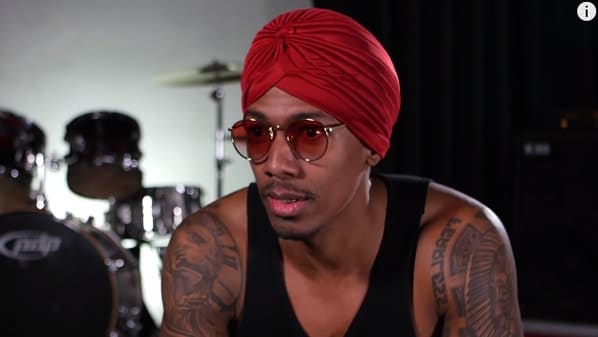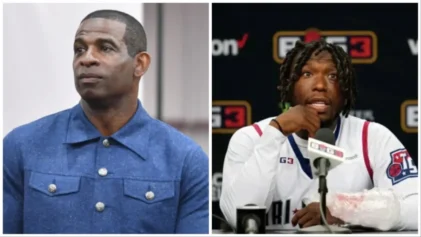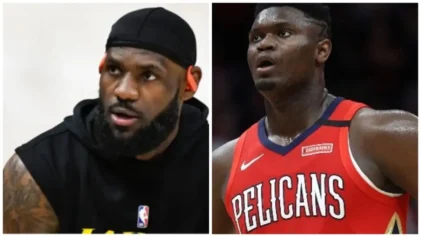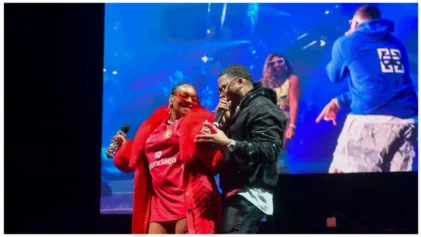
YouTube
Nick Cannon recently stopped by VladTV to discuss a variety of topics, including all of the sexual assault and misconduct claims that have surfaced in entertainment.
In Cannon’s opinion, all women, whether they’re in entertainment or not, have been on the receiving end of sexual harassment. He also applauded the women who’ve rallied together and named names.
“I guarantee you, every woman, every actress has a story where she was mistreated or had to deal with sexual misconduct,” said Cannon. “And how she’s dealt with it, some internalize it, some speak on it but I guarantee you, I’ve seen it myself, to where it’s like ‘That’s horrible’ but where at this time where they speaking up, and it’s a beautiful thing.”
Cannon’s statement about women being sexually harassed is supported by the numbers.
In a recent study by the Harvard Graduate School of Education, 87% of women ages 18-25 say they’ve been sexually harassed, and researchers said that percentage has increased since their last findings.
Much of that harassment occurs in the workplace as well, according to a poll released by ABC News and The Washington Post. Those figures show that 33 million women in the United States have been sexually harassed and 14 million sexually abused, either at work or at work-related events.
In entertainment circles, women are treated even worse, said Cannon, mainly because sex is the main thing that’s being sold.
“Entertainment, especially when part of it is beauty, it’s an uncomfortable situation already,” he explained. “It’s literally a cattle call, which is horrible. Women coming in and presenting themselves saying hire me. That’s horrible.”
Tiffany Haddish said she received plenty of harassment and unwanted advances in her early days of stand-up comedy. It was something she addressed in her memoir “The Last Black Unicorn.”
“I can’t tell you how many promoters tried to tell me that to get on stage, I had to get on my back,” Haddish wrote.
She also spoke to People magazine about that difficult time in her life.
“It seemed like everybody wanted to get in my panties,” Haddish recalled. “It was constant defending and battling. These men will try you every single time. It’s like hazing. Once they figure out you’re strong and you don’t roll like that, then they start treating you like a colleague.”
Haddish is the latest woman of color in entertainment to talk about sexual harassment, following people like Lupita Nyong’o, Ashanti and filmmaker Sidney Lumet.
Clearly, since the former studio head Harvey Weinstein was accused of assaulting several actresses, and the #MeToo campaign began on Twitter, the conversation of the mistreatment of women has been front and center.
Catholic School Demands Apology from Nick Cannon After Performance
Nick Cannon Quite Nonchalant About R. Kelly Cult Accusations: ‘I Don’t Know and I Really Don’t Care’
Nick Cannon Wonders Why Media Is Questioning His Mental State After He Stands Up For Himself
But not everyone has shared the same level of enthusiasm for the campaign. Some have reminded people that the phrase was started by a Black woman named Tarana Burke over 10 years ago. Burke is also a victim of sexual assault, and she used the “Me Too” phrase to empower all females but especially Black women.
This time around, #MeToo became popular after it was tweeted by the actress Alyssa Milano. Although Burke was recognized for the initial campaign, some thought it was wrong that she wasn’t included on the cover of Time’s 2017 Person of the Year issue.
In fact, Gabrielle Union — who admitted to being a rape victim herself — said she doesn’t feel the recent sexual harassment talk has been inclusive of Black women.
“I think the floodgates have opened for white women,” she told the New York Times. “I don’t think it’s a coincidence whose pain has been taken seriously. Whose pain we have showed historically and continued to show. Whose pain is tolerable and whose pain is intolerable. And whose pain needs to be addressed now.”
“If those people hadn’t been Hollywood royalty,” Union added. “If they hadn’t been approachable. If they hadn’t been people who have had access to parts and roles and true inclusion in Hollywood, would we have believed?”
The actress and longtime activist Jane Fonda said something similar on MSNBC’’s “All In With Chris Hayes.”
“It feels like something has shifted. It’s too bad that it’s probably because so many of the women that were assaulted by Harvey Weinstein are famous and white and everybody knows them. This has been going on a long time to Black women and other women of color and it doesn’t get out quite the same.”
As far as Burke, she was placed on the inside of Time’s Person of the Year issue, which didn’t remove all of the backlash the magazine received.
She also penned an op-ed for The Washington Post and like Union and Fonda, said Black women’s claims of sexual harassment have either gone ignored or haven’t caused a big enough stir.
“Black women have been screaming about famous predators like R&B singer R. Kelly, who allegedly preys on black girls, for well over a decade to no avail,” she wrote. “Anita Hill, thanklessly, put herself and her career as a law professor on the line more than 25 years ago to publicly name Clarence Thomas for sexually harassing her at work.”
Burke also pointed to a 2010 study by the Centers of Disease Control and Prevention that showed 22 percent of non-Hispanic Blacks were either victims of rape or an attempted rape. That’s compared to 18.8 percent of non-Hispanic whites, 14.6 percent of Hispanics and 35.5 percent of women of multiple races.


